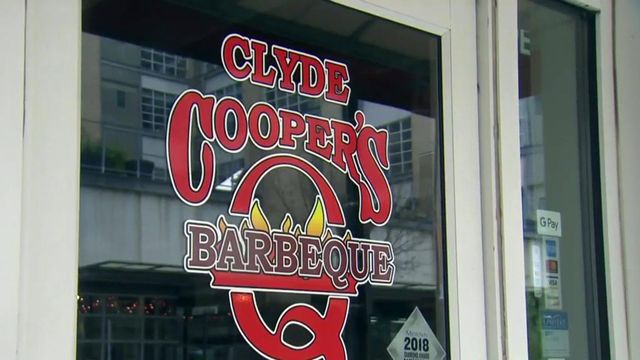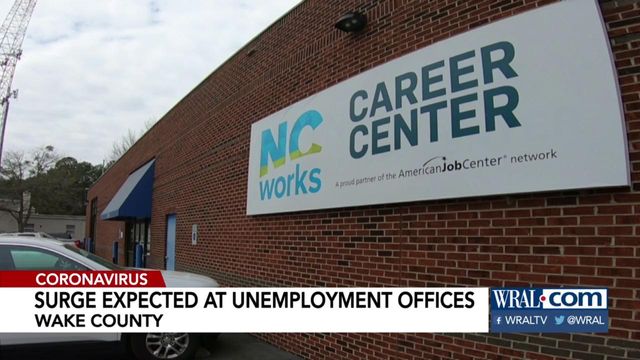NC unemployment claims race past 100,000
By Thursday evening the state had seen 42,000 unemployment claims. By Monday morning, it was 113,002.
Posted — UpdatedThat's roughly eight months worth of claims in a week, compared to 2019 numbers.
By Saturday, the state said it had logged 83,000 claims since Monday, most of them direct results from COVID-19.
On Monday morning, the state put it at 113,002 claims and said at least 87 percent listed COVID-19 as a factor. It's probably a higher percentage than that – not everyone is listing COVID-19 on their paperwork.
In a normal week, the system logs about 3,200 new unemployment claims, based on 2019 numbers.
A number of people have told WRAL News they continue to see long wait times as they try to apply for unemployment. Division of Employment Security spokesman Larry Parker said staffers are taking and returning calls as quickly as possible, working overtime and weekends. The division is also recruiting to hire 50 new people.
Not everyone eligible
Independent contractors and people who are self-employed are not typically eligible for unemployment benefits.
"In order to be eligible, workers must have held a job considered covered employment," Parker said in an email. "A person’s employment is ‘covered’ if it is through an employer that is liable under state and federal law to pay unemployment insurance tax on that person’s wages. Some examples of non-covered employment are employment by a religious organization, commission-based insurance and independent contractors."
Business owners who pay unemployment insurance taxes on their own wages may be eligible for benefits, Parker said.
System has $3.8 billion
Weekly benefits are calculated by dividing a person's total wages from the past six months by 52.
The maximum paid per week is $350. The maximum duration is 12 weeks, but that changes with the unemployment rate, and the General Assembly could change the system's rules. A legislative session is likely after the federal government hashes out its stimulus plans in the crisis.
The average weekly benefit before COVID-19 hit was $264, and the system has about $3.8 billion in its Unemployment Insurance Trust Fund.
Many restaurant employees said they fear their checks will be far less, especially if tips aren't fully reflected in their W-2s.
"I haven't slept. I've ran numbers on my phone in the middle of the night thinking about everybody," said Debbie Holt, the owner of Clyde Cooper's Barbecue.
After Gov. Roy Cooper banned dine-in service at restaurants and bars statewide last week to slow the spread of the virus, Holt said she decided to shut down altogether.
"I worried about it for three weeks, running numbers and thinking and worrying about this virus," she said.
Her daughter helped all of the employees sign up for unemployment benefits.
"We're all in this situation we didn't ask for, and we've got to make the best of it. But I'm not going to throw them out," Holt said. "They're really my co-workers and my family. They know that I'm going to take care of them."
She said she fears that the wider the outbreak becomes and the longer the shutdowns last, the harder the recovery will be for many businesses and their employees.
"This isn't a time to be cold-hearted and greedy. This is a time to do whatever you can to help somebody because everybody has a dream.
"This right here could be the killer to that dream," she added.
The Division of Employment Security also released some historical information Monday from past downturns, saying that it paid out:
- $465 million in the 1991 recession
- $1.2 billion in the 2002 recession
- $2.5 billion in the 2009 recession
Back then, the state had higher weekly maximums and a higher maximum duration, at 26 weeks. The General Assembly lowered those maximums after the state's system ran up a $2 billion-plus debt to the federal government.
The division also released information on natural disasters Monday, saying it paid out:
- $6.47 million after Hurricane Floyd
- $2.25 million after Hurricane Isabel
- $1.86 million after Hurricane Irene
- $608,641 after Hurricane Matthew
- $2.16 million after Hurricane Florence
Related Topics
• Credits
Copyright 2024 by Capitol Broadcasting Company. All rights reserved. This material may not be published, broadcast, rewritten or redistributed.






